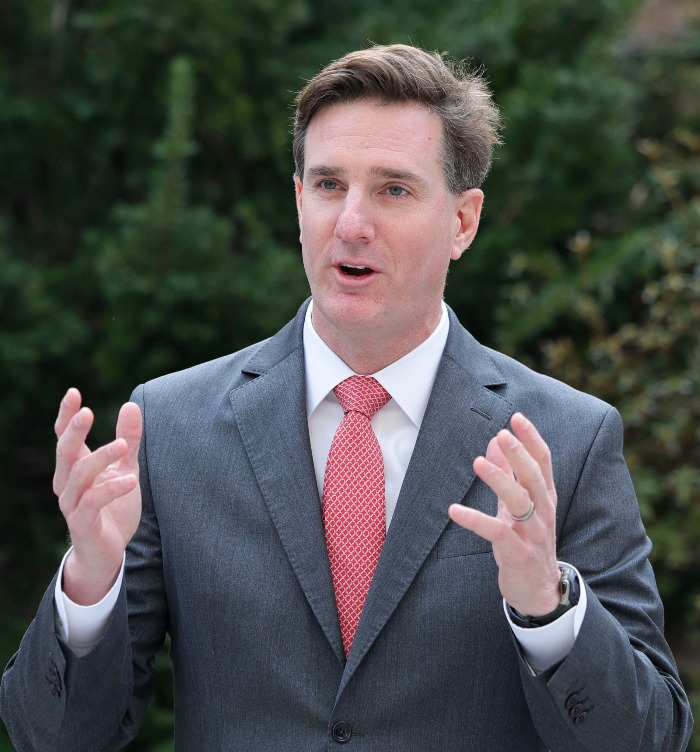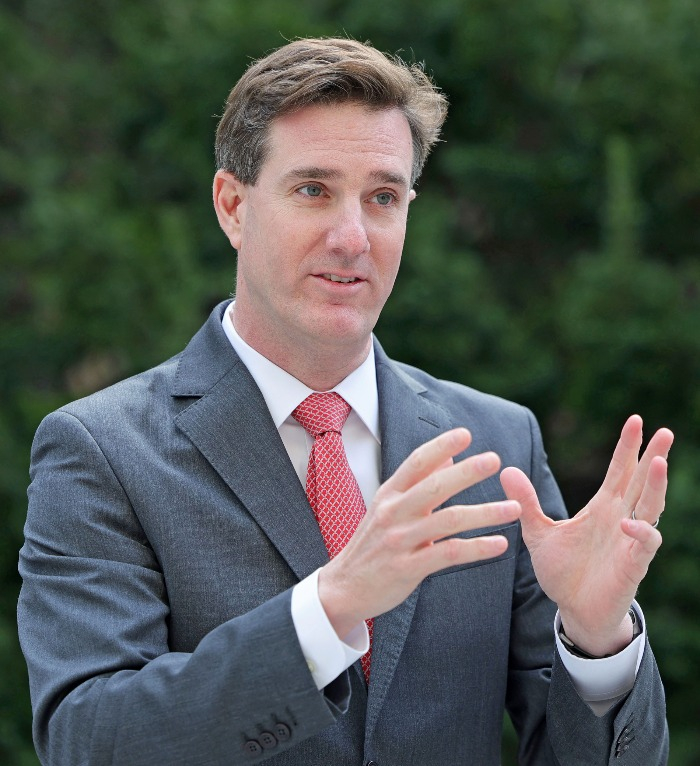Asset management
Fed rate cuts will be faster than market consensus: TCW
Two-year notes the most compelling of US Treasuries in either an economic slowdown or a recovery, Steven Purdy says
By Apr 02, 2024 (Gmt+09:00)
3
Min read
Most Read
LG Chem to sell water filter business to Glenwood PE for $692 million


KT&G eyes overseas M&A after rejecting activist fund's offer


Kyobo Life poised to buy Japan’s SBI Group-owned savings bank


StockX in merger talks with Naver’s online reseller Kream


Meritz backs half of ex-manager’s $210 mn hedge fund



Investors tend to rush to fixed-income markets when recession risk rises. South Korean investors are no exception – retail investors have been on a buying spree of US Treasury bonds since the end of 2023, anticipating the Federal Reserve’s rate cuts.
While inflation and job growth are still strong in the US, the elevated interest rate has started impacting the economy and the Fed could lower the rate faster than market expectations once the economy begins to contract, said Steven Purdy, co-head of global credit at Los Angeles-based TCW Group.
TCW is a global investment firm managing $210 billion in assets as of Dec. 31, 2023. The company’s portfolio encompasses public fixed income, public equities and private credit. The firm has been managing funds from Korean institutional investors for more than 10 years.
“The Fed is at risk of getting behind negative economic momentum at which point they must make multiple rate cuts to catch up,” he told The Korea Economic Daily during his visit to Seoul in March.
“History tells us that large rate rises are followed by recession with some amount of lag. The pandemic created a unique set of circumstances such as excess consumer savings and labor scarcity, which have delayed the rate hikes’ impact on the economy, but the current high level of rates will slow the economy.
Also, we are hearing meaningful concerns among US-based business leaders worried about US consumers, the presidential election and global geopolitical conflicts. These uncertainties typically lead to reduced hiring and capital investment,” he said.

TCW puts a particular focus on US Treasuries and US agency mortgage securities as those assets offer high credit quality and wide spreads and yields.
“Although US agency bonds face selling pressure from quantitative tightening, the value is too good to ignore and spreads will compress over time,” Purdy said.
In terms of duration, he noted that US Treasuries are exhibiting an inverted yield curve in which shorter-dated bonds have higher rates than longer-dated bonds. This is very unusual and curves will likely normalize quickly, he added.
“It is worth noting that normalization typically occurs in both economic slowdowns and recoveries, bringing positive outcomes in both scenarios. So, we see two-year notes as the most compelling among US Treasury bonds,” he said.
On the corporate credit side, TCW sees investment-grade bonds as the most attractive yields for long-term investors. Over the past two years, the firm has built many "buy and hold" portfolios of selected investment-grade bonds, which achieve about 5.5% yields with moderate price volatility.
“There could be fluctuations in spreads until maturity. But we believe the default risk of those portfolios is low enough for investors to realize the initial yield,” Purdy said.
With tight spreads between corporate bonds and US Treasuries, TCW is rotating out of US investment grade bonds and into US agency mortgages and European investment grade bonds for actively managed portfolios. The firm expects the US investment grade and high-yield bond spreads to widen later this year.
As it nears the US presidential election, there could be a moment where increased volatility provides credit investors with a better entry point to gain attractive relative value, Purdy said.
“We believe that fixed income spreads revert to their long-term average over a credit cycle. Once we’re ensured that the bond principal will be fully repaid at maturity, we will turn to our risk budget adjustment for relative value. We look to the combination of fundamental and relative values to continue to achieve compelling long-term returns amid market uncertainties this year,” he added.
Write to Jihyun Kim at snowy@hankyung.com
Jennifer Nicholson-Breen edited this article.
More to Read
-
 Asset managementUS non-agency mortgage-backed securities to shine in 2023: TCW
Asset managementUS non-agency mortgage-backed securities to shine in 2023: TCWDec 22, 2022 (Gmt+09:00)
long read -
 Private debtInvestors may see tough credit cycle in direct lending: TCW Private Credit
Private debtInvestors may see tough credit cycle in direct lending: TCW Private CreditJul 06, 2022 (Gmt+09:00)
long read
Comment 0
LOG IN


